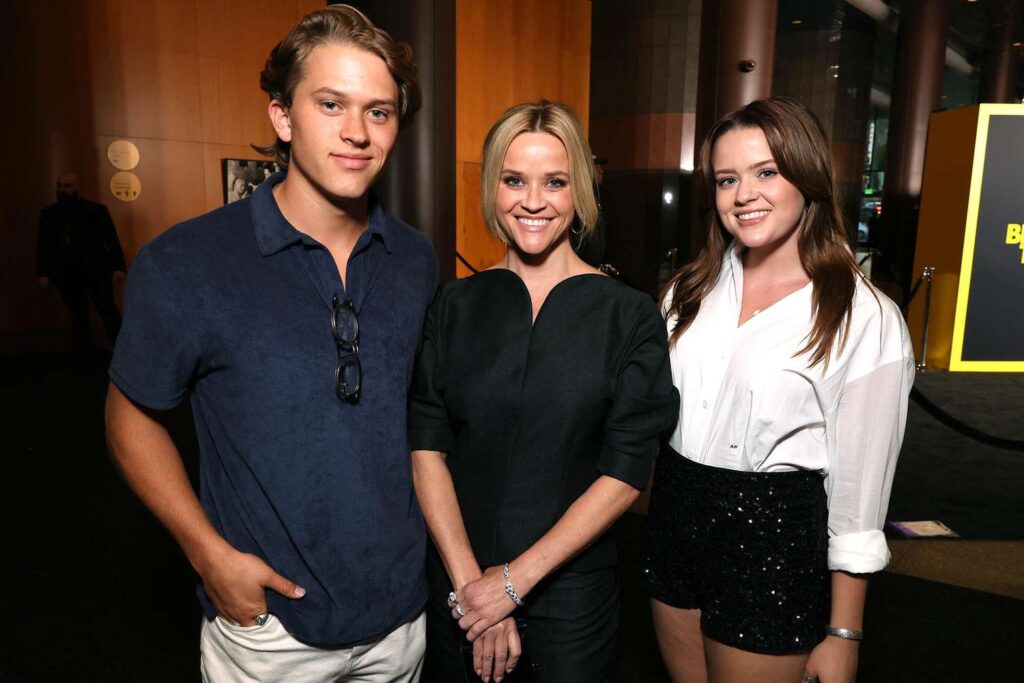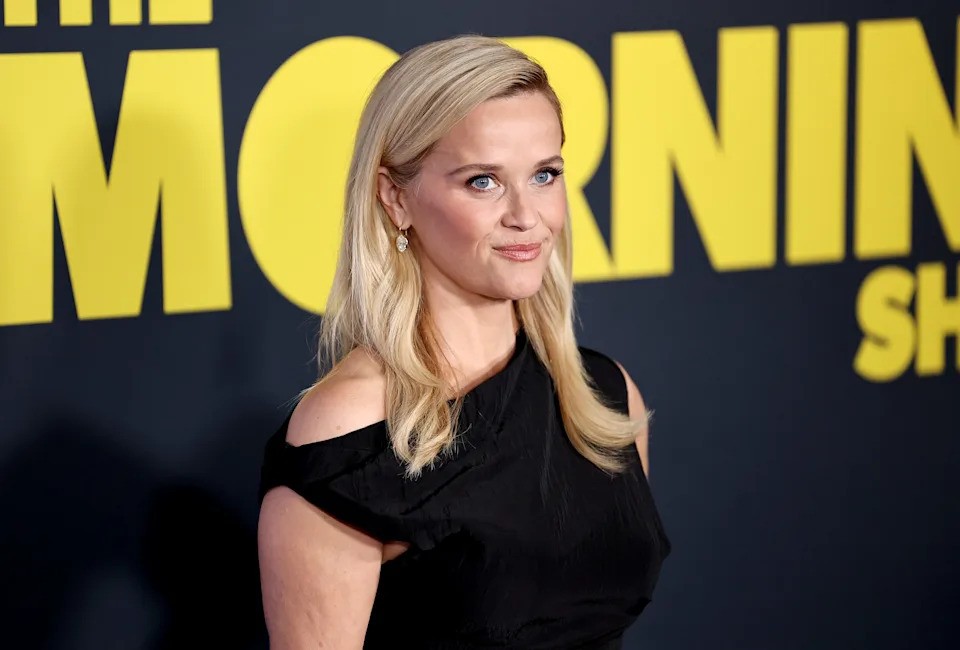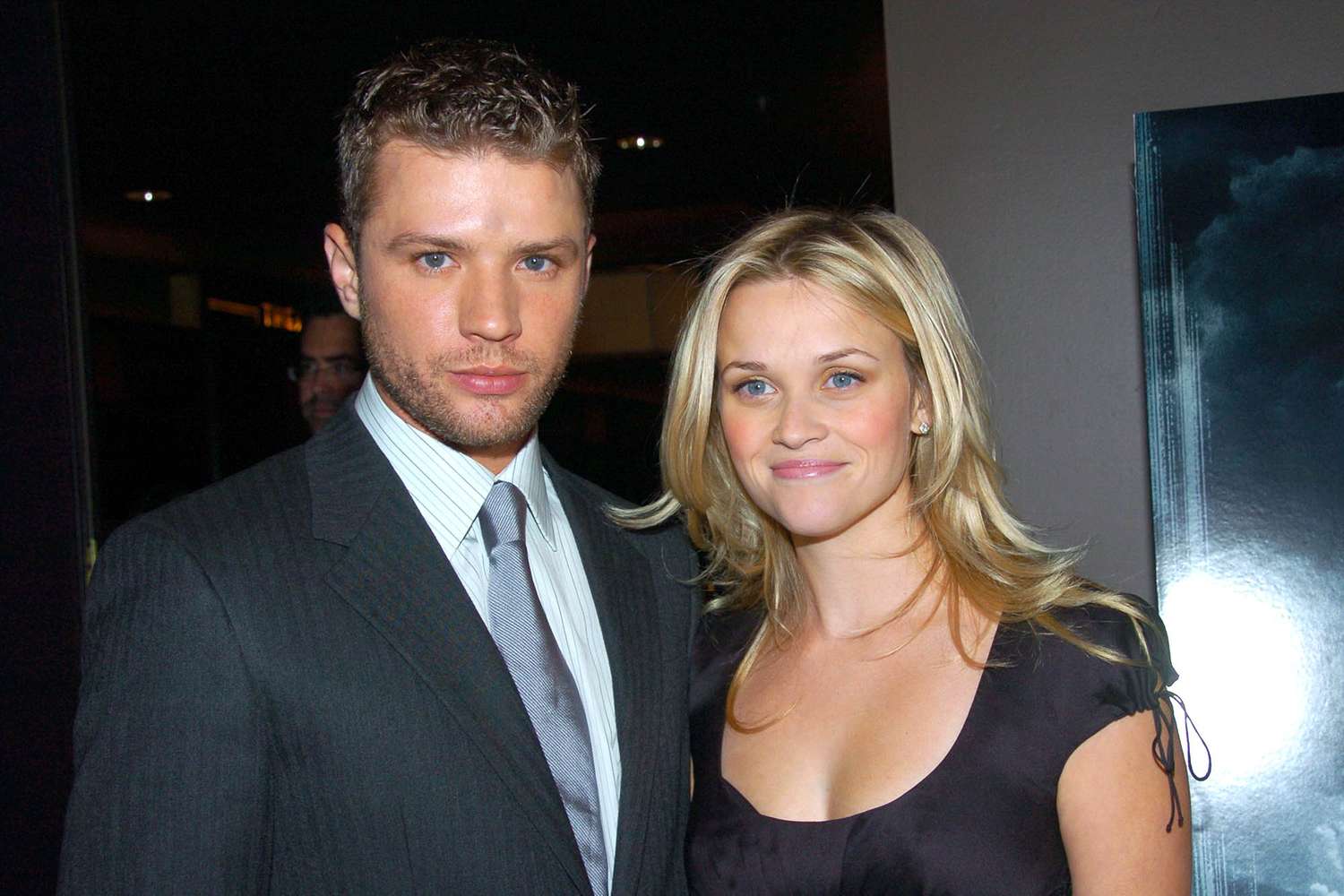Reese Witherspoon has long been considered one of Hollywood’s most down-to-earth stars, a powerhouse actress, producer, and entrepreneur who built a career on balancing fame with family. But behind the bright lights and red carpets, she now admits she carries some very dark memories of what it was like to raise children during the height of paparazzi culture in Los Angeles. In a recent interview with The New York Times, Witherspoon reflected on the terrifying reality of that period, explaining that she deeply regrets living in LA when her children were young because of the harassment, danger, and trauma that came with being constantly pursued by photographers.
At the time, she was in her early thirties and enjoying the biggest career highs of her life. Legally Blonde had turned her into a household name, and by 2005 she won an Academy Award for Walk the Line. But she was also a young mother, raising her daughter Ava, born in 1999, and her son Deacon, born in 2003, with then-husband Ryan Phillippe. Fame and family collided in a way that was far from glamorous. Unlike today, when stars can curate what they share on Instagram, there was no controlled outlet then. The only way the public could see celebrity kids was through paparazzi photos, and that created a frenzy.
Witherspoon recalled how she and her close friend Jennifer Garner would talk constantly about how to protect their children from this tidal wave of unwanted attention. The photographers weren’t just lurking around restaurants or premieres; they were outside schools, trailing cars, and circling playgrounds. She shared one especially frightening memory of leaving church with her kids when a man jumped onto the hood of her car while others banged on the windows and tried to block her in. What should have been an ordinary Sunday turned into a chase down the freeway that felt like a nightmare. “It was terrifying,” she said, adding that it left her children with lingering anxiety and fear.
The emotional toll went beyond anxiety. Strangers would scream crude or wildly inappropriate things just to get a reaction or capture an emotional moment on camera. For a child, this wasn’t just inconvenient — it was traumatic. Witherspoon admitted that her kids suffered from “bad anxiety” as a direct result of the constant harassment, and that even she could not shield them from the intrusion. Looking back, she confessed, “I really regret living in LA during that time.”
Her reflections aren’t just about her own experiences but also about the broader culture of the 2000s, which she called “a very punishing time for women in the spotlight.” She pointed out how unfairly women were portrayed depending on where they were seen. A mother photographed at a nightclub could be painted as irresponsible, while the same woman at a playground was held up as an example of domestic perfection. For some women, the scrutiny was unbearable. Witherspoon spoke with particular compassion about Britney Spears, whose public struggles became fodder for tabloids worldwide. “She was a young mother trying to figure it out, away from home, being chased like an animal,” Witherspoon said. “What that kicks up inside your body and what it does for you is very traumatic.”
Her words echo a cultural reckoning that has been unfolding in recent years. Documentaries like Framing Britney Spears have forced the public to confront the way the press treated young women at the time, often reducing them to caricatures while profiting off their pain. Witherspoon has also acknowledged in past interviews that she herself was pursued just as aggressively as Spears but avoided harsher fallout because the media framed her differently. “What if the media had decided I was something else? I would be in a totally different position,” she said in 2021, reflecting on how arbitrary reputations often were.
The arrival of social media shifted the balance of power. Once celebrities could share their own pictures online, the market for paparazzi photos of children dwindled. “There was no longer a market to see pictures of my children because people were getting it for free,” Witherspoon explained. It was a turning point that allowed her and other stars to reclaim some control over their family lives.

By then, she had also made a major life decision. In 2006, the same year she filed for divorce from Phillippe, she moved her family to Nashville, far from the chaos of LA. There, her kids could grow up with more privacy and less pressure. Years later, she welcomed her third child, Tennessee, with her second husband, Jim Toth, in 2012. That marriage ended in 2023, but throughout the changes in her personal life, she has remained steadfast in prioritizing her children’s well-being above all else.
Even with the struggles of her earlier years, Witherspoon never slowed down in her professional life. She became one of Hollywood’s most bankable actresses and later reinvented herself as a producer and businesswoman. Through her company Hello Sunshine, she has championed stories centered on complex female characters, bringing hits like Big Little Lies and The Morning Show to life. At 49, she continues to expand her influence in Hollywood. She is currently starring in the fourth season of The Morning Show on Apple TV+ and is expected to return for a third season of Big Little Lies. She is also producing Elle, a Legally Blonde prequel series at Amazon Prime Video, which will introduce a younger version of Elle Woods played by actress Lexi Minetree.
Her career triumphs have been matched by her resilience as a mother. Ava, now 25, has begun making her own mark in creative fields, while Deacon, 21, is pursuing music and acting. Tennessee, at just 12, remains largely out of the public eye, a sign that Witherspoon has succeeded in creating stronger boundaries for her youngest child. That sense of protection is no doubt rooted in the regret and trauma she carries from the earlier years in Los Angeles.
Her candid reflections serve as a powerful reminder of the unseen costs of celebrity life. While fans consumed paparazzi photos as entertainment, children like Ava and Deacon were growing up in a climate of fear, anxiety, and chaos. Witherspoon’s story underscores that behind every glossy magazine cover, there are very real families trying to survive. Her compassion for Spears and others demonstrates that she not only remembers her own suffering but also recognizes how much worse it could have been.
Today, she represents a different kind of Hollywood figure — one who refuses to let the media define her and who uses her platform to advocate for more nuanced storytelling and greater respect for privacy. Her admission that she regrets raising her children in Los Angeles isn’t just a personal confession; it’s a cultural statement about the damage of unchecked paparazzi power.

As she continues to thrive in her career and personal life, her story stands as both a cautionary tale and a testament to resilience. Reese Witherspoon has survived the punishing glare of the 2000s media circus and emerged stronger, but she hasn’t forgotten what it cost her and her children. By speaking openly now, she ensures that those years are remembered not as harmless tabloid entertainment but as a painful chapter in Hollywood history — one that should never be repeated.



